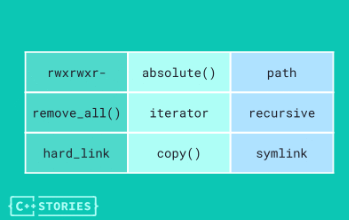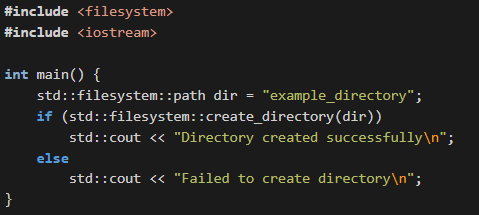22 Common Filesystem Tasks in C++20 -- Bartlomiej Filipek
 Working with the filesystem can be a daunting task, but it doesn’t have to be. In this post, I’ll walk you through some of the most common filesystem operations using the powerful features introduced in C++17, as well as some new enhancements in C++20/23. Whether you’re creating directories, copying files, or managing permissions, these examples will help you understand and efficiently utilize the
Working with the filesystem can be a daunting task, but it doesn’t have to be. In this post, I’ll walk you through some of the most common filesystem operations using the powerful features introduced in C++17, as well as some new enhancements in C++20/23. Whether you’re creating directories, copying files, or managing permissions, these examples will help you understand and efficiently utilize the std::filesystem library.
22 Common Filesystem Tasks in C++20
by Bartlomiej Filipek
From the article:
Creating directories is a basic yet essential operation. The
std::filesystemlibrary makes this straightforward with thecreate_directoryfunction.


 I had the privilege to attend and present at C++ on Sea 2024 for the 5th time in a row!
I had the privilege to attend and present at C++ on Sea 2024 for the 5th time in a row!